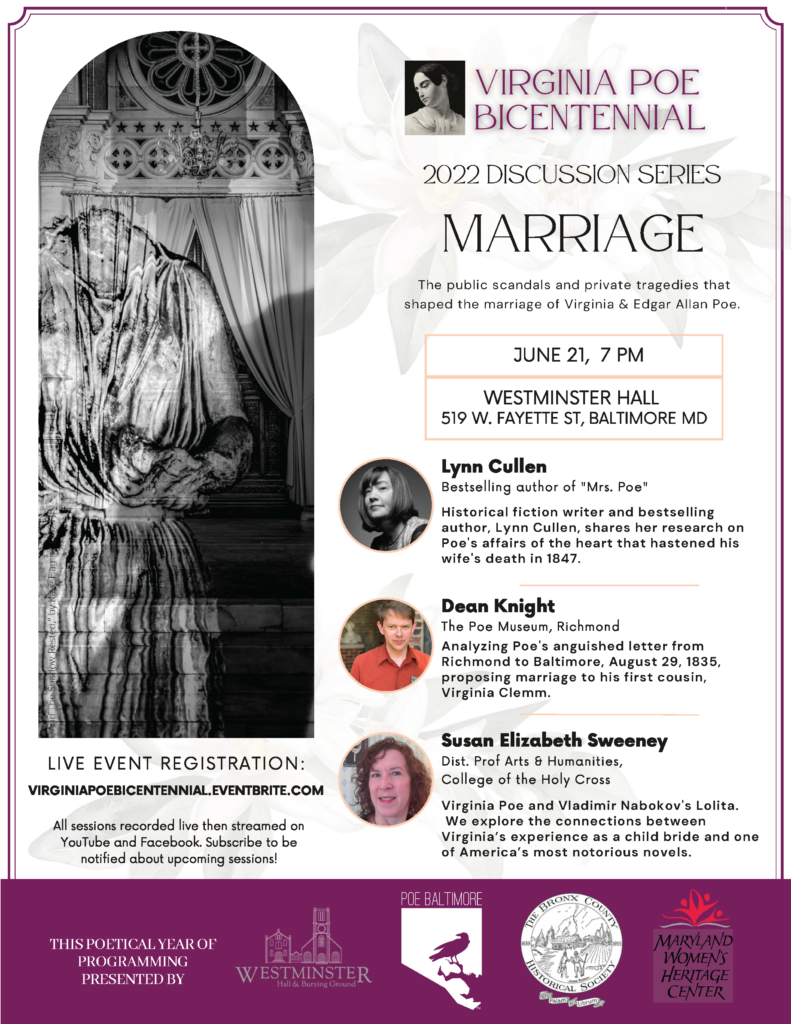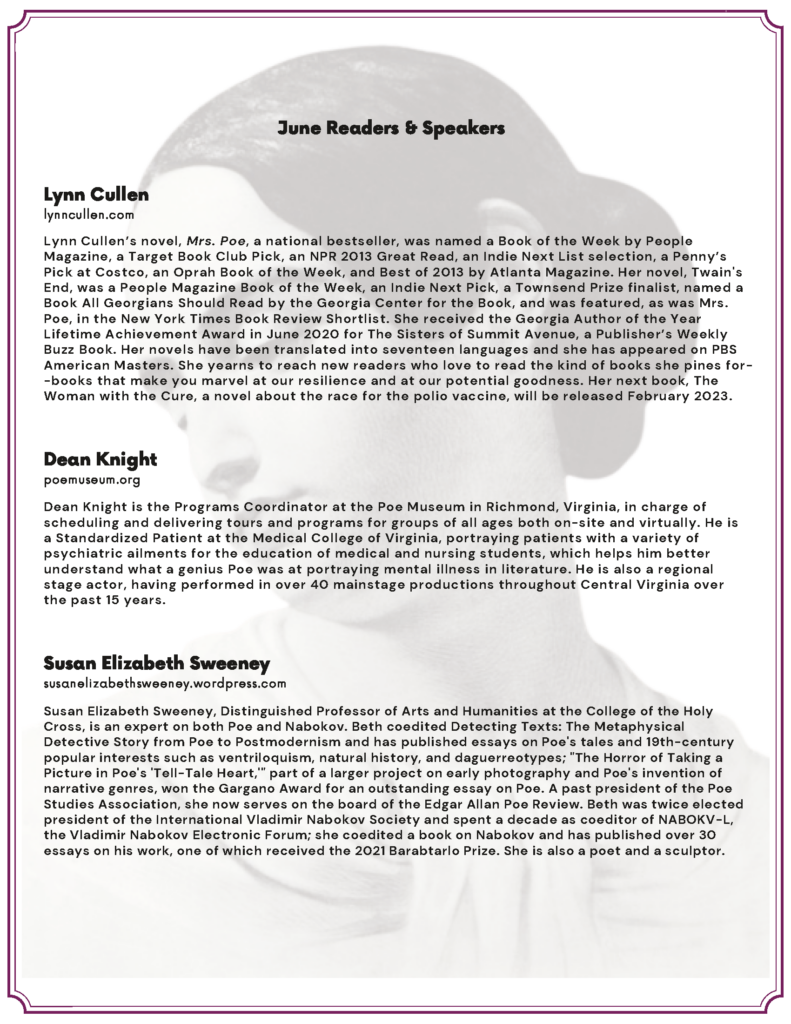Excerpts from our June session of the Virginia Poe Bicentennial Discussion Series. The public scandals and private tragedies that shaped the marriage of Virginia & Edgar Allan Poe.
Overview: Enrica Jang, Director of The Edgar Allan Poe House & Museum in Baltimore, provides an overview of the marriage of Virginia Clemm to her cousin, Edgar Allan Poe.
Act I: Tender Hearts
Dean Knight from The Poe Museum in Richmond, Virginia, analyzes Poe’s anguished letter from Richmond to Baltimore, August 29, 1835, proposing marriage to his first cousin, Virginia Clemm.
Act II: Affairs of the Heart
Historical fiction writer and bestselling author, Lynn Cullen, shares her research on Poe’s affairs of the heart that hastened his wife’s death in 1847.
Act III: Virginia Poe and Vladimir Nabokov’s Lolita
Poe and Nobokov scholar, Susan Elizabeth Sweeney, explores the connections between Virginia’s experience as a child bride and one of America’s most notorious novels.
This is the sixth in a pre-recorded discussion series for the Virginia Poe Bicentennial. The Virginia Poe Bicentennial is presented by Poe Baltimore, Westminster Hall & Burying Ground, Maryland Women’s Heritage Center, the Poe Cottage at Fordham (Bronx, NYC,) with generous help and participation from Poe Studies Association, The Edgar Allan Poe Society of Baltimore and The Poe Museum (Richmond.)
Discussion with bestselling author, Lynn Cullen, who wrote the novel “Mrs. Poe” inspired by the rumored extra-marital affair between Edgar Allan Poe and the writer, Frances Osgood.
What did Virginia know? How did this affair of the heart (and perhaps more) impact her last days of marriage to Poe before her premature death in 1847? Preview of our penultimate session in the Virginia Poe Bicentennial Discussion Series, “MARRIAGE: Public Scandals & Private Tragedies of Mr. and Mrs. Poe”
Poe Baltimore’s mission is to celebrate Edgar Allan Poe’s legacy, a man at times unfairly maligned, at other times fairly taken to task for his faults. As good stewards of history, we must be uncompromising about the truth: about Poe, about ourselves, and about our American story.
203 N. Amity Street was established as a house museum and shrine to Edgar Allan Poe in 1949. We are an active and important cultural highlight in the Poppleton neighborhood of West Baltimore. And while we are a federally designated National Historic Landmark, the raw physical truth remains that Poe House is a small 620 square-foot remnant of a house that was built in the 1800s. The museum could not have survived for nearly 75 years without the care and regard for history that the members of this predominantly Black community have shown. Neighbors see wandering tourists and lead them to our door. Children playing with their friends outdoors helpfully point people our way. Black and minority individuals are the majority corps of Urban Rangers who lead tours at Poe House.
As an organization, Poe Baltimore supports our neighbors and fellow citizens as they support the museum in our care. We owe nothing less than an unequivocal statement against racism in any form, and specifically racism against Black people. Black Lives Matter. There is no place for racism or hate in any community. We stand with Poppleton in the beautiful City of Baltimore and commit to work together to turn the page on a new chapter for our city and country.
The Poe Baltimore Board of Directors and Staff


